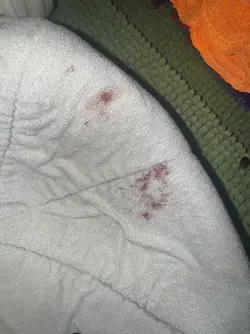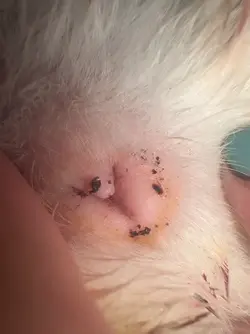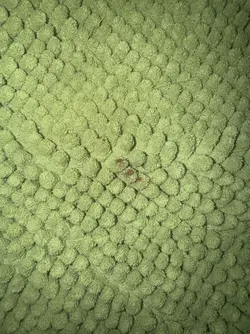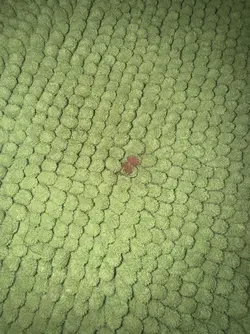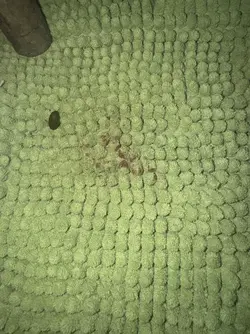sunnysidestyles
New Born Pup
Hi all,
We first noticed blood in the cage from our piggie Luna just over a month ago. It was quite a lot of blood so she went straight to vets and got anti inflammatory meds and antibiotics.
After this she was fine for a couple weeks until we noticed blood again, only a little this time but she went straight back to the vets and got another round of antibiotics and anti inflammatories. She finished those about a week ago but we’ve just noticed blood again, so she’s on her way back to the vets again.
She’s eating, drinking, running around, and popcorning still. She’s still so full of energy and happy, we’ve noticed no changes in her at all. She doesn’t squeak when she has a wee or poo, and doesn’t show any signs of discomfort.
Has anyone else had experience with anything like this and what was the outcome? We are very nervous about her going under anaesthetic if she needs to, as we’ve never had that for a piggy before and we are worried she won’t wake up again.
I don’t think it’s a UTI because it’s not mixed with wee, we’ve had a piggy before with a UTI who had anti inflammatories and she’s been fine ever since. We changed their diet after that to reduce calcium to hopefully prevent that again.
Other options we think it might be is she’s passed a bladder stone or something and she’s just passing blood after that, or if it’s something more serious like ovarian cysts or an issue with her uterus.
Any advice or experience would be greatly appreciated, even as just an indication for what we should be prepared for.
We first noticed blood in the cage from our piggie Luna just over a month ago. It was quite a lot of blood so she went straight to vets and got anti inflammatory meds and antibiotics.
After this she was fine for a couple weeks until we noticed blood again, only a little this time but she went straight back to the vets and got another round of antibiotics and anti inflammatories. She finished those about a week ago but we’ve just noticed blood again, so she’s on her way back to the vets again.
She’s eating, drinking, running around, and popcorning still. She’s still so full of energy and happy, we’ve noticed no changes in her at all. She doesn’t squeak when she has a wee or poo, and doesn’t show any signs of discomfort.
Has anyone else had experience with anything like this and what was the outcome? We are very nervous about her going under anaesthetic if she needs to, as we’ve never had that for a piggy before and we are worried she won’t wake up again.
I don’t think it’s a UTI because it’s not mixed with wee, we’ve had a piggy before with a UTI who had anti inflammatories and she’s been fine ever since. We changed their diet after that to reduce calcium to hopefully prevent that again.
Other options we think it might be is she’s passed a bladder stone or something and she’s just passing blood after that, or if it’s something more serious like ovarian cysts or an issue with her uterus.
Any advice or experience would be greatly appreciated, even as just an indication for what we should be prepared for.
